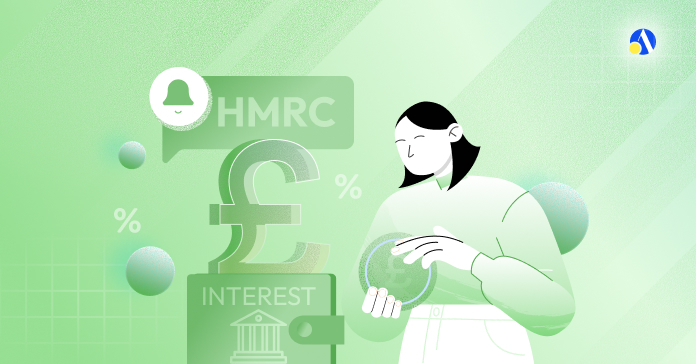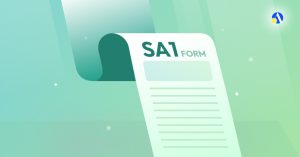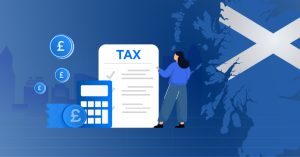As a business owner, you likely focus on your company's finances. But what about your personal savings? With rising interest rates, more people are finding they might owe tax on the interest they’ve earned. How does this work, and do you need to inform HMRC yourself?
Understanding savings interest rules can seem complicated, especially with various allowances. This guide will explain how tax on savings works, detailing the allowances and what happens if you exceed your tax-free limit.
We’ll clarify when you need to act and when HMRC handles things automatically, so you can manage your savings confidently.
UK Tax Basics: Your Personal Allowance
Before we look at savings, it’s helpful to recap the basics. Every UK resident gets a Personal Allowance, which is the amount of income you can earn each year before you start paying Income Tax. For the 2024/25 tax year, the standard Personal Allowance is £12,570.
This allowance is typically used against your primary source of income, such as your salary or profits from your business. Any income you earn above this amount is subject to tax.
Paying Tax on Your Savings Interest
Most individuals can earn some tax-free interest on their savings due to various allowances.
What is the Personal Savings Allowance (PSA)?
Introduced in April 2016, the Personal Savings Allowance (PSA) lets you earn a specific amount of savings interest tax-free each year. The allowance you receive depends on your Income Tax band.
| Tax Band | Income Tax Rate | Personal Savings Allowance (PSA) |
| Basic-rate | 20% | £1,000 |
| Higher-rate | 40% | £500 |
| Additional-rate | 45% | £0 |
Since April 2016, banks and building societies have paid interest without deducting tax ("gross interest"). You are responsible for paying any tax due on interest earned above your Personal Savings Allowance.
What is the Starting Rate for Savings?
Those with lower incomes might also qualify for the starting rate for savings, allowing them to earn up to an additional £5,000 in tax-free savings interest.
Whether you qualify, and how much of this £5,000 you get, depends on your other income (like your salary or pension).
| Non-Savings Income | Eligibility for Starting Rate for Savings |
| £17,570 or more | Not eligible |
| Less than £17,570 | May qualify. Starting rate for savings is reduced by £1 for every £1 of income above the Personal Allowance (£12,570). |
Example: How the Starting Rate for Savings Applies
Imagine your business profits are £25,000, and you also earn £1,000 in savings interest. How does the starting rate for savings apply to you as a business owner?
Step-by-Step Breakdown
- Apply Personal Allowance (£12,570)
- First £12,570 of your business profits is tax-free.
- Calculate Taxable Profits
- Business profits: £25,000
- Subtract Personal Allowance (£12,570)
- Taxable profits = £12,430
- Check Starting Rate for Savings
- Starting rate for savings = £5,000
- Taxable profits exceed £17,570 (£12,570 + £5,000), so the starting rate for savings does not apply.
- Use Personal Savings Allowance
- As a basic-rate taxpayer, you can earn up to £1,000 in savings interest tax-free.
- Savings interest: £1,000
- No tax is due on your savings interest.
Outcome:
You pay no tax on your first £12,570 in profits and no tax on your £1,000 savings interest. Use these thresholds to plan your finances effectively!
Do banks automatically tell HMRC about interest?
Yes, they do. Banks, building societies, and other financial institutions are legally required to report the amount of interest they pay to customers directly to HMRC at the end of each tax year.
HMRC then uses this information to check if you owe any tax. If they find you've earned interest above your tax-free allowances, they will usually take action to collect it.
What happens if I earn more than £1,000 in interest?
Earning over £1,000 in interest doesn’t necessarily mean you owe tax, as you may qualify for the starting rate for savings. However, for most basic-rate taxpayers, any interest exceeding the £1,000 personal savings allowance will be taxable.
If you owe tax, how it's collected depends on your circumstances:
- If you are a business owner drawing a salary (PAYE): HMRC will usually adjust your tax code so the tax due on your savings interest is automatically collected through your salary over the following year. This is calculated based on information from the previous year.
- If you file a Self Assessment tax return: As a business owner, you must report all savings interest on your tax return, even if it falls within your Personal Savings Allowance (PSA). The tax owed will be included in your overall Self Assessment bill.
- If you don’t operate under PAYE or Self Assessment: HMRC will issue a P800 tax calculation or a Simple Assessment letter with the amount of tax you owe and details on how to pay.
You generally need to register for Self Assessment if your income from savings interest is over £10,000.
What happens if I don't declare interest?
Since banks report interest payments directly to HMRC, they will likely discover any undeclared tax. Failing to declare taxable interest income can result in penalties and interest charges.
It's always best to be proactive. If you believe you owe tax on your savings and haven't heard from HMRC, you should inform them. You can call their helpline, or if your interest income is under £10,000 and you don't file a tax return, you can use their online service to check your Income Tax.
Your Savings & Tax Questions Answered
Is interest from an ISA taxable?
No. Interest earned from an Individual Savings Account (ISA) is tax-free and does not count towards your Personal Savings Allowance.
What about savings for my children?
Interest earned on a child’s savings account is typically tax-free, as it falls within their Personal Allowance. However, if a child earns more than £100 in interest in a tax year from money given by a parent, the entire amount is taxed as the parent’s income. This rule does not apply to money from grandparents, other relatives, or funds held in a Junior ISA.
What has changed with interest rates?
When the PSA was introduced in 2016, interest rates were low. A basic-rate taxpayer would have needed over £50,000 in savings to exceed the £1,000 allowance. Today, with higher rates, the same £1,000 of interest can be earned with a deposit of less than £20,000. As a result, many more people are now paying tax on their savings.
Let Debitam Help You Stay Compliant
Running a business is hard enough—don’t let taxes add to the stress. At Debitam, we simplify your finances, handling everything from Self Assessment tax returns to maximising your allowances. Focus on growing your business while we take care of the rest! Let's talk!














